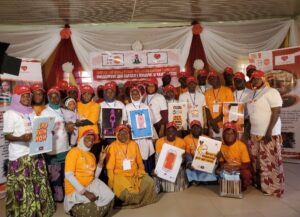Save the Slum Initiative (STSI), with funding from the United Nations Population Fund (UNFPA), has hosted two workshops to strengthen efforts against Female Genital Mutilation (FGM) in Kaduna State.
Samuel Owa, STSI’s Executive Director, made this known on Tuesday at the end of the workshops, emphasising their role in equipping Community-Based Organisations (CBOs) to advocate against FGM.
Owa said the training aimed to provide CBOs with the knowledge and tools to raise awareness, advocate for change, and protect the rights of women and girls.
He said that the workshops were part of a broader initiative to end FGM by empowering grassroots organisations as change agents in their communities.
Owa said participants were educated on the harmful effects of FGM on physical and mental health, the socio-cultural factors that sustained it, and the legal frameworks that prohibited the practice.
He said the sessions also included strategies for effective advocacy, community mobilisation, and stakeholder engagement.
“The workshops created a platform for CBOs and CSOs to share experiences, learn from experts, and develop tailored action plans to combat FGM in their communities.
“The interactive nature of the sessions allowed participants to discuss local challenges and explore sustainable solutions for ending FGM.
“The training took place in Ikara and Makarfi Local Government Areas (LGAs), with 60 participants, including 30 representatives from 15 CBOs and CSOs in each location,” Owa said.
Owa called the training a significant milestone in the fight to end FGM in Kaduna, saying, “Together, we can eliminate this harmful practice.”
Bashir Dogon-Koli, Chairman of Ikara Local Government, expressed gratitude to STSI and UNFPA, noting the training aligned with the government’s commitment to community well-being.
Hadiza Shehu, Chairman of Lungu Wime Support Association, described the training as empowering, adding that it inspired bold steps in advocacy to challenge FGM.
In spite of progress, Shehu noted the ongoing challenge of deep-rooted cultural practices and the need for further community sensitisation.
According to him, with continued support from UNFPA and collaboration among stakeholders, the goal of ending FGM in Kaduna is achievable.
The project highlighted the critical role of partnerships in driving sustainable change, and STSI remains committed to working with UNFPA and local organisations to create a safer future for women and girls.


